Knowledge will forever govern ignorance, and
a people who mean to be their own governors,
must arm themselves with the power knowledge gives.
A popular
government without popular
information or the means of acquiring it, is but a prologue to a
farce or a tragedy or perhaps both.
-- James
Madison --
 auf Deutsch:
http://wkeim.bplaced.net/coe_resultat.htm
auf Deutsch:
http://wkeim.bplaced.net/coe_resultat.htm
English summary of letter in German
Walter Keim, Email: walter.keim@gmail.com
Torshaugv. 2 C
N-7020 Trondheim, 25. February 2012
Commissioner
for
Human Rights
of the Council of Europe
Council of Europe
F-67075 STRASBOURG CEDEX
Copy: Parliamentary
State Secretary of Justice Dr. Max Stadler, Commission on European
Family Law (CEFL), MEP Rainer Wieland
Rejection of Suggestions of Commissioner for Human Rights by German
Parliaments, Freedom of Information and Separation of Powers
Summary:
- Commissioners suggestions are rejected by 12 German parliaments. The
rank of Human Right Conventions has not been respected.
- 84 states with 5.5 billion inhabitants give better access to information then the federal
Freedom of Information Law in Germany. More then 115
states with more then 5.9 billion inhabitants adopted FOI laws or provisions in
constitutions. 5 German states with half of the population lack FOI
laws.
- The UN
Convention
against Corruption is ratified by 158 states with more then
6,5 billion inhabitants, but not by Germany.
- Germany did not ratify the Criminal
Law
Convention on Corruption and does not follow Recommendation
Rec(2003)4 on common rules against corruption in the funding of
political parties and electoral campaigns of the Council of Europe as GRECO
(Group of States against Corruption) suggested 4. December 2009.
Germany is the only state in Europe which has not ratified any of these
to conventions against corruption (Appendix AA).
- EU does not care about these transparency
preconditions of democracy and lack of separation of powers.
Dear Mr. Hammarberg,
18. November 2003 (Appendix B) and 21.
November 2006 (Appendix C) I informed the Commissioner for Human
Rights of the CoE about structural problems in Germany. You visited Germany
2006 and published 11.
July 2007 report CommDH (2007)14 with suggestions (Appendix
A). The report addresses problems by practical suggestions. From the
perspective of real live experience I focused on the following
extracts:
- 35: The Commissioner also stresses the importance of training judges
and prosecutors working in courts at Länder and local levels on the
European Convention on Human Rights in order to strengthen its direct
national implementation. The Commissioner is aware of the involvement of
the Federal Ministry of Justice in the development of the new Council of
Europe Programme for Human Rights Education for Legal Professionals
(HELP) and he encourages German authorities to take an active part in
its implementation. (..)With regard to legal studies at universities,
the Commissioner notes with regret that international human rights law
appears to be often taught as an optional part alone. He encourages the
German universities to integrate human rights in the core curricula of
legal studies.
- 46 Extending the infrastructure of human rights education would
further strengthen the integration of human rights into professional
career tracks. The Commissioner encourages the incorporation of human
rights as a core component in professional training in law enforcement,
for teachers as well as practitioners in the social and health sectors.
In addition, government officials in general, as well as
parliamentarians on federal and state levels, would benefit from human
rights training adapted to their area of work.
- 47. Although Germany has taken many initiatives in relation to the UN
Decade for Human Rights Education, so far it has not developed a
comprehensive, effective and sustainable national action plan for human
rights education.
- 52. Accordingly, the Commissioner strongly encourages the German
authorities to further develop the national action plan on human rights
as a co-ordinated process for the continuous improvement of human rights
protection in Germany.
and recommendations:
- 2. Consider the establishment of parliamentary human rights committees
at Länder level.
- 3. Promote the independence of extrajudicial complaints bodies, when
possible, and ensure that complaints are handled on the basis of clear
procedures.
- 5. Strengthen the mandate of the German Institute for Human Rights
with regard to structural and factual monitoring and in respect to its
consultative role in the process of drafting legislation with human
rights relevance.
- 8. Intensify and enhance the integration of human rights teaching
methods in pre- and in-service training of school teachers and
strengthen the institutionalisation of human rights education for other
professions.
During the hearing in the German parliament Bundestag
am
15. October 2008 of the 8. Report of the Federal Government on Human
Rights Policy Mrs Frauke Seidensticker from the German Institute
for Human Rights regretted that there was no discussion of report CommDH
(2007)14 of the commissioner for Human Rights of the CoE Thomas
Hammarberg (Appendix
N).
The report deserves better. Therefore these suggestions and recommendations
were included in petitions to the federal parliament Bundestag (Appendix
15) and 11 parliaments of federal states (Länderparlamente) (z.
B. Appendix 16) in order to promote the report.
According to CoE RECOMMENDATION
No. R (85) 13 an independent Ombudsman for public administration
should be empowered "to investigate and give opinions when human rights are
involved". Germany is the only country in Europe which "reserved the right
to comply with it or not." German administration refers to courts to secure
citizens human rights. Therefore these petitions suggest to strengthen the
separation of powers according to CoE recommendations. Judges manly in
states (Bundesländer) should no longer be hired, promoted and supervised by
executive power to become really "independent and subject only to the law"
see Article
97
Basic Law.
The suggestion to provide to the general public easily accessible
information on the available extrajudicial complaints bodies is expended to
administrative transparency, i. e. the human right of access to public
documents.
The answers are very disappointing:
Only few parliaments even comment on the suggestions. All parliaments refuse
to support the suggestions.
As parliaments ignored the suggestions, copies of some petitions were sent
direct to a few courts. In a letter of 8. January 2008
the president of the court (LG) Zweibrücken threatened with punishment
for defamation (Appendix 13),
for sending a copy of petition E
72/08 I.1.1/osw: "Suggestions of the Human Rights Commissioner,
independent justice" to judge Raphael Mall. 25. March 2008 the
president was asked to withdraw this threat (Appendix
14) because of freedom of opinion.
The European Convention on Human Rights has the rank of a law. However the
convention is missing on the side "laws-on-internet" (www.gesetze-im-internet.de,
http://bundesrecht.juris.de).
Therefore it was suggested 28. April. 2007, to
add it to site www.gesetze-im-internet.de
under
federal law. The federal Ministry of the Justice refuses adding the
convention because lack of capacity (Appendix
24).
The Committee on Economic, Social and Cultural Rights of the UN in the
Forty-sixth session, Geneva, 2-20 May 2011 delivered report E/C.12/DEU/CO/5:
"Consideration
of reports submitted by States parties under articles 16 and 17 of the
Covenant" with "Concluding observations of the Committee on Economic,
Social and Cultural Rights":
7. The Committee remains concerned
that the provisions of the Covenant have not
been invoked before the national courts of the State party.
The Committee urges the State party to take all appropriate measures
to
ensure effective applicability of the provisions of the Covenant in
national
courts, including by raising awareness of this obligation and the
provisions of
the Covenant among judges, lawyers and other officials involved in
law
enforcement.
More than 158 countries with 6,5 billion inhabitants ratified the United
Nations Convention against Corruption (UNCAC) (Appendix
K). Germany did not ratify this convention because of insufficient
rules on bribery of members of parliaments. MPs protect themselves in order
to be able to accept bribery without prosecution .
The Group of
States against Corruption
(GRECO) of the Council of Europe saw
deficiencies
combating corruption in Germany and made 2009 suggestions on
transparency of financing of parties. The federal parliament Bundestag
refused 2011 (see "Ausschussdrucksache 17(4)283 des Innenausschusses") to
comment these suggestions with the majority of the governing coalition
parties of CDU/CSU and FDP (Appendix
21).
Stuttgart 21 is an urban development and railway transport project in
Stuttgart as part of the Stuttgart–Augsburg new and upgraded railway project
in Baden-Württemberg and Bavaria in Germany. It consists of the replacement
of the tracks and platforms of Stuttgart Hauptbahnhof, the city's main
railway station, with new infrastructure mainly located underground. The
project has been under development for more than a decade and construction
work began in February 2010. Since the summer of 2010, its development has
been highly controversial with some politicians and the public (Appendix
O, Appendix
V, P, Q).
The Stuttgart 21 project has been a controversial issue among politicians
and locals since the idea of a through station for long distance trains -
running under the existing station - was first noted in the mid 1980s. Since
2009 numerous protests against the disputed project have taken place. More
than 50,000 people demonstrated against Stuttgart 21 on October 1st, 2010.
On September 30, 2010, hundreds of demonstrators were injured when the
police used water cannons, pepper spray and batons against peaceful
protesters. The following day, more than 50,000 people took part in the
largest demonstration against the project so far.
The reason for the protests are lack of possibilities of participation and
lack of transparency. Stuttgart21Leaks.tk
published reports about internal documents that show that both the public,
parliaments and sometimes even governments did not get the necessary
information to decide (Appendix R, T, U).
Democracy requires an informed citizenry with access to public
information. In order to try to get access to information about costs of
Stuttgart 21 applications
were
filed to the Ministry of Traffic (Verkehrsministerium),
Railway-directorate (Eisenbahn-Bundesamt), Court of Auditors
(Rechnungshof), Parliament (Haushaltsausschuss des Bundestages) and the
Prime Minister of the Land Baden-Württemberg (Appendix 22).
The Ministry of Traffic refused access to
report about costs and benefits of new railway from Wendlingen to Ulm
(Gutachten "Neubewertung der Nutzen-Kosten-Analyse der Neubaustrecke
Wendlingen-Ulm") because it was considered a business secret. The
Railway-directorate and the Court of Auditors answered not to know about
this report.
Other applications for access to information are refused due to various
reasons. Business secrecy is often used e. g. by the ministry of traffic (BMVBS). Even total costs covered by
95 % of public funding is tested as business secret by the state owed
railway company. The supervision of railway (Eisenbahn-Bundesamt) denies
access to avoid disadvantages for supervision ("nachteilige
Auswirkungen auf Kontroll- und Aufsichtsaufgaben"). The parliament
Bundestag refuses access because of parliamentary tasks ("Wahrnehmung
parlamentarischer
Aufgaben"). The human right of access to information is denied by
all. Necessary transparency in a democracy is not reached.
Even an Application to access why Bavaria rejects the suggestions of the
Human Rights Commissioner was rejected (Appendix
24).
More then 115 states (http://right2info.org/laws)
with more then 5,9 billion inhabitants adopted FOI laws or provisions in constitutions.
Therefore it is necessary to adopt FOI laws in 5 of German states with
half of the population. Info Europe and the Centre for Law and
Democracy have analyzed 89 FOI laws. Germany reached place 85, i. e.
at the bottom (Right to Information Rating: http://www.rti-rating.org/country-data/
). 5.5 billion have better access laws.
Therefore access to information applications can not be used to obtain a
minimum of democracy and e. g. get access to information about the
Stuttgart 21 railway project (Appendix 22).
Germany
suggested 11. February 2010 to remove the human right of access to public
documents from the "General Comment No. 34 on Article 19 of the
ICCPR" (Appendix
18). However the suggestion was not followed 24. March 2011 (page
17
of the minutes) by the human rights committee (Paragraph 18 bis
20 Draft
General
Comment No. 34 on Article 19) (Appendix 19).
26. October 2007 Human Rights
Commissioner read my suggestions with interest and wrote to consider to
use them (Appendix J).
Does EU help?
The European Union is originally intended to
guarantee the free movement of goods,
capital, services, and people
in order to create an internal free market.
But
Article
2
of the Treaty on European Union reads:
"The Union is founded on the values of respect for human
dignity, freedom, democracy, equality, the rule of law and respect for
human rights, including the rights of persons belonging to
minorities."
Unfortunately only new members are evaluated and must adopt these norms.
Germany violates e. g. the following international principles:
- Independence of judges, i. e. separation of powers is not done,
violation of Art. 6 of European Convention on Human Rights i. e.
Recommendation No. R (94)12 and PACE resolution 1685 (2009) [see
Appendix E: http://wkeim.bplaced.net/files/separation_of_powers.htm,
Appendix L, M, O]
- Human right of access to public documents (information) is still
lacking in 5 of 16 states (länder) (see Appendix 16), which is
found all over Europe and the civilized word.
- Decriminalisation of punishment of defamation (insult, libel) (see
OSCE results Appendix
F, G, H).
Up to now 180 000 accused i. e. 20 % of criminal prosecution cases are
insult (Appendix 18: http://www.eucars.de/images/stories/insult_eng.pdf).
Even sending copies of petitions about defamation and suggestions of the
Human Rights Commissioner was answered by a threat of insult accusation
(Appendix 13 and 14).
This was also transmitted to the European Parliament and the EU
Commission 17. October 2007
(Appendix Z) without reaction.
Germany does not follow international standards on separation of
powers. Judges at administrative courts are hired, promoted and
supervised by the executive power and are not independent according to
Art. 6 of European Convention on Human Rights(Appendix
E).
Decriminalisation of libel/insult is not done in Germany.Punishment and
public prosecution of libel and defamation no longer done in most European
states. The
UK
has since 1927 reduced punishment for defamation and only written
"Libel" under special circumstances remains. Since 1997 only 1 to 5
convictions per year. The German statistics show 50.00 cases for 1927
for libel. I the year 2005 more than 180.000 cases occurred with a
raising tendency. Most OSCE states have decriminalised insult (Appendix F,
G, H).
EU was reminded that the human right of access to public documents is not
respected i 5 German states (Bundesländer). This was transmitted to
the EU Commission, the EU Parliament, the European
Union Agency for Fundamental Rights (FRA) (KOM(2005))
and the EU Ombudsman. The answers prove that EU does not even comment
to Germany but refers to the Council of Europe for reactions. (Appendix 23).
Germany has to improve the federal FOI law, adopt FOI laws in 5 local
states (Bundesländer), ratify CoE and UN conventions against corruption
and improve transparency of funding of political parties and sideline jobs
of members of parliaments to catch up with other states (see weaknesses
no. 2, 3, 4, 8, 34, 35 and 52 of National Integrity Report Transparency
Germany, January 2012, Appendix
AB).
I refer to the investigations MEP Philippe Boulland of the European
Parliament concerning 120 petitions about the Jugendamt. The petitions
raise the question if the European Convention of Human Rights, the UN
Convention on the Rights of the Child and the European Charter of
Fundamental Rights are violated, because of structural problems.
Petitioners report on denials of access to documents and unfair treatment.
Parliamentary
State Secretary of Justice Dr. Max Stadler was asked by me to
implement the report CommDH(2007)14 about Germany of the Commissioner for
Human Rights of the Council of Europe (Appendix E) and guarantee real
independence of judges according to Recommendation No. R (94)12 and PACE
Resolution 1685 (2009) to cure the problems (Appendix
AC).
To sum up, for to catch up with Europe and the world Germany should:
Sincerely,
Walter Keim
Copy: Deutsches Institut
für Menschenrechte, Menschenrechtszentrum, BMJ, Lehrstuhl für Menschenrechtsbildung,
Menschenrechtsbeauftragter der
Bundesregierung, Ausschuss
für
Menschenrechte und Humanitäre Hilfe
Appendices:
- 13.05.08 Bundestag: There is no reason to
do what is suggested therefore the petition is closed. http://wkeim.bplaced.net/files/080513bt.pdf
- 16.04.08 Baden-Württemberg: The
petition cannot be helped: http://wkeim.bplaced.net/files/L-BW-Petition_14-1581.pdf
- 03.07.08 Bayern: There
is
no reason to realize the suggestions:
http://wkeim.bplaced.net/files/080703ba.pdf
- 19.11.07 Berlin: The petition
is rejected since there is no need. http://wkeim.bplaced.net/files/071119be.pdf
- 11.04.08: The
Committe of petitions will not act:
http://wkeim.bplaced.net/files/080411br.pdf
- 03.04.09 Hessen: Petition
is considered finnished: http://wkeim.bplaced.net/files/090403he.pdf
- 05.02.09 Sachsen-Anhalt: The
parliament Landtag declares
the petition closed, without doing something with the problems:
http://wkeim.bplaced.net/files/080205sa.pdf
- 07.05.08 Niedersachsen: The
parliament Landtag finds no reason to support the cause: http://wkeim.bplaced.net/files/080507ni.pdf
- 02.09.08 Rheinland-Pfalz: MPs acceppt
that the suggestions of the Human Rights Commissioner are not
realized: http://wkeim.bplaced.net/files/080904rlp.pdf
- 08.04.08 NRW: There
is
no reason to act: http://wkeim.bplaced.net/files/080408nrw.pdf
- 28.04.08
Sachen: There is no reason to discuss the volumonous
contributions about human rights:
http://wkeim.bplaced.net/files/080428s.pdf
- 19.12.08 Saarland: Committee
joins the comment of the government and closes the petition: http://wkeim.bplaced.net/files/081219sl.pdf
- 08.01.08
: Die Gerichtspräsidentin vom LG Zweibrücken mit Androhung von
Strafantrag wegen Beleidigung: http://wkeim.bplaced.net/files/080108-Irmgard_Wolf.html
- 25.03.08: Die
Landgerichtspräsidentin wird aufgefordert die Drohung mit Strafanzeige
zurückzunehmen, wegen Meinungsfreiheit. http://wkeim.bplaced.net/files/080325lgz.htm
- 21.08.07: Petition
an Bundestag die Vorschläge des Menschenrechtskommissars umzusetzen,
die Justiz unabhängig von der Exekutive machen und Vorschläge des
Menschenrechtskommissars umsetzen. http://wkeim.bplaced.net/petition_gg.htm
- Petition 14/1581 Baden-Württemberg: about suggestions of the
Humanrights commissioner on human rights and judicidal independance: http://wkeim.bplaced.net/files/petition_bw-mg.htm
- Human right access to information in Germany: http://wkeim.bplaced.net/files/ifg-material.htm
- Peter Briody:
Strafbarkeit von Beleidigungen: http://www.eucars.de/images/stories/beleidigung_de.pdf
- 11.02.11:
Deutschland möchte das Menschenrecht des Zugangs auf Dokumente der
öffentlichen Verwaltung und andere Menschenrechte des Zivilpaktes
streichen: http://wkeim.bplaced.net/files/German_comments_on_Draft_General_Comment_No.34.pdf
- HUMAN RIGHTS COMMITTEE.
DISCUSSIONS ON DRAFT GENERAL COMMENT NO. 34- MEETING NOTES (18 MARCH
– 24 MARCH 2011): http://freedominfo.org/documents/HRCnotesMarch2011.pdf
- Lobbypedia - GRECO: http://www.lobbypedia.de/index.php/GRECO
- 2011: Führt Stuttgart 21 zu mehr Offenheit und Transparenz? http://wkeim.bplaced.net/files/if-stuttgart21.htm
- 01.09.2011: EU überlässt dem Europarat Menschenrechte in
Mitgliedsstaaten: http://wkeim.bplaced.net/files/if-eu.htm
- 14. May 2007: The federal Ministry of the Interior refuses
adding the convention because lack of of capacity: http://wkeim.bplaced.net/files/070514bmi.htm
- 13. December 2011: Application to access why Bavaria rejects the
suggestions of the Human Rights Commissioner: http://wkeim.bplaced.net/files/ifg-einsicht.htm
Result:
Published on Internet:
- 11 July 2007, CommDH(2007)14: REPORT BY THE COMMISSIONER
FOR HUMAN RIGHTS MR THOMAS HAMMARBERG ON HIS VISIT TO GERMANY 9. –
11. and 15. – 20. October 2006: https://wcd.coe.int/ViewDoc.jsp?Ref=CommDH(2007)14&Language=lanEnglish Strengthen
the mandate of the German Institute for Human Rights with regard to
structural and factual monitoring, develop the national action plan on
human rights.
- Visit of the Commissioner of Human Rights
(CoE) in Germany: http://wkeim.bplaced.net/files/coe-031128.htm
- 21. November 2006: What will the
Commissioner for Human Rights report on Germany? http://wkeim.bplaced.net/files/coe-0611.htm
- Empfehlung
Nr.
R (94)12 des Ministerkomitees an die Mitgliedstaaten über die
Unabhängigkeit, Effizienz und Rolle der Richter: http://web.archive.org/web/20140107004837/http://www.gewaltenteilung.de/richter_7.htm
- Separation of powers in Europe: http://wkeim.bplaced.net/files/separation_of_powers.htm
- IRIS 2006-10:2/1: Ilia Dohel: Büro des OSZE-Beauftragten für die
Freiheit der Medien. Beauftragter für Medienfreiheit: Bericht über
Erfolge bei der Entkriminalisierung von Ehrverletzungen: http://merlin.obs.coe.int/iris/2006/10/article1
- Volume:
35
Number: 12 Rep. Christopher H. Smith, Co-Chairman May 24, 2002
www.csce.gov CRIMINAL DEFAMATION AND “INSULT” LAWS: http://wkeim.bplaced.net/files/osce_defamation_2002.htm
- Defamation in international law, OSCE, Council of Europe and law in
Germany: http://wkeim.bplaced.net/files/defamation.htm
- Oktober 2007: Menschenrechtskommissar des Europarates kritisiert
Deutschland: http://www.socialtimes.de/nachricht.php?nachricht_id=8915&thema_id=31&PHPSESSID=a22b2271f6a4e8235c1ee4d3588a091e
- 26.10.07: Menschenrechtskommissar las
meine Vorschläge gesetzlicher Reform mit Interesse und wird ihn
möglicherweise benutzen: http://wkeim.bplaced.net/files/coe-071026.pdf
- http://de.wikipedia.org/wiki/UNCAC:
Zur Zeit (13.12.2011) haben 158 Staaten das Übereinkommen der Vereinten
Nationen gegen Korruption (UNCAC) ratifiziert, nicht aber Deutschland,
wegen ungenügender Regelung der Abgeordnetenbestechung.
- Udo Hochschild: GEWALTENTEILUNG IM DEUTSCHEN BEWUSSTSEIN. Versuch
einer Kritik: http://web.archive.org/web/20140107004837/http://www.gewaltenteilung.de/einf_druck.htm
- Die Entfesselung der
dritten Gewalt Von Heribert Prantl [veröffentlicht in der
Süddeutschen Zeitung Nr. 81 vom 6. April 2006, Seite 28] http://gewaltenteilung.de/prantl.htm
- 15.10.08: Anhörung
im
Deutschen Bundestag zum 8. Bericht der Bundesregierung über ihre
Menschenrechtspolitik - Statement von Frauke Seidensticker: Bedauerlich
dass
keine Auseinadersetzung mit dem Bericht des Kommissars für
Menschenrechte des Europarates Thomas Hammarberg enthalten ist. http://webarchiv.bundestag.de/archive/2010/0427/bundestag/ausschuesse/a17/anhoerungen/bericht8/stellungn/Seidensticker.pdf
- PACE Press release - 712(2009): The independence of the judicial
system is the principal line of defence against political interference
in the law: http://assembly.coe.int/ASP/Press/StopPressView.asp?ID=2205
- 07.11.10: Stuttgarter Zeitung: Stuttgart 21 erneut Thema im Bundestag:
http://www.stuttgarter-nachrichten.de/inhalt.verkehrsausschuss-stuttgart-21-erneut-thema-im-bundestag.2e1599b1-a001-437d-8047-12d08b7a00e7.html
- 19.08.10: Frankfurter Rundschau: Stuttgart 21: Tricksen und täuschen.
http://www.fr-online.de/politik/tricksen-und-taeuschen/-/1472596/4573076/-/index.html
- 11.10.2010: Stuttgart 21: Ende der Mogelei: http://www.spiegel.de/spiegel/0,1518,722375,00.html
- 15.10.10: Deutschlandfunk: Alle Fakten müssen auf den Tisch: http://www.dradio.de/dlf/sendungen/interview_dlf/1296939/
- 10.11.2010: Herr Volker Kauder kommen
Sie Ihrer in einer Demokratie selbstverständlichen Informationspflicht
nach: http://wkeim.bplaced.net/files/101110vk.htm
- Petition Menschenrecht Informationszugang: http://wkeim.bplaced.net/petitionen-if.htm
- Bundestag Drucksache 17/3269: http://www.winnehermann.de/2010/wp-content/uploads/2010/10/101025_AW_Sachstand-S21_und_NBS-Wendlingen-Ulm.pdf
- 15.12.2010: Greenpeace e.V.: Bürgerinformationsgesetz: Wissen, was die
Behörden wissen: http://www.presseportal.de/pm/6343/1735054/greenpeace_e_v
- Point 5.4 of Resolution 1685 (2009) Europarat: Allegations of
politically motivated abuses of the criminal justice system in Council
of Europe member states http://www.assembly.coe.int/Mainf.asp?link=/Documents/AdoptedText/ta09/ERES1685.htm
- Charta
der Grundrechte der Europäischen Union: Artikel 51.
Anwendungsbereich. (1) Diese Charta gilt für die Organe und
Einrichtungen der Union unter Einhaltung des Subsidiaritätsprinzips und
für die Mitgliedstaaten ausschließlich bei der Durchführung des Rechts
der Union.
- 17.10.2007: Petition
an Europäischen Parlament, Kopie an die EU Kommission über
Menschenrechtsverletzungen in Deutschland: http://wkeim.bplaced.net/files/0710eup-en.htm
- 4. December 2009, GRECO Evaluation Report on Germany on Incriminations
(ETS 173 and 191, GPC 2): http://www.coe.int/t/dghl/monitoring/greco/evaluations/round3/GrecoEval3(2009)3_Germany_One_EN.pdf
- 26. January 2012, What can be done to improve transparency and
fight against corruption in Germany? http://wkeim.bplaced.net/foi-ngo.htm
- 9. February 2012, Letter to MEP Philippe Boulland: Jugendamt, Human
Right of Access to Public Documents and Good Administration: http://wkeim.bplaced.net/files/1202eup.htm
Development:
Visitor No.  since 4. January 2012
since 4. January 2012
[Freedom of
Information] [Petitions] [Constitutional
complaint] [Human
rights] [Homepage]
Colours on picture: dark green: FOIA enacted. Yellow:
pending law. FOIA= Freedom of Information Act
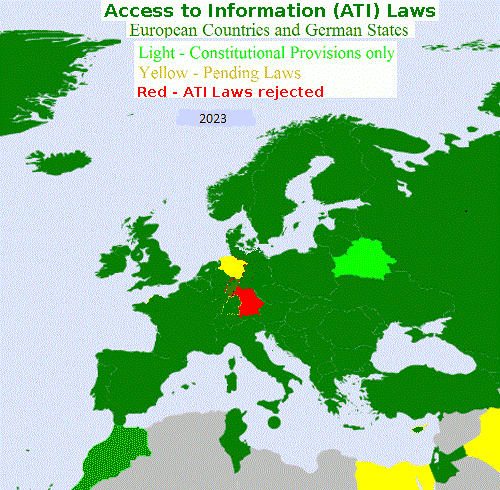
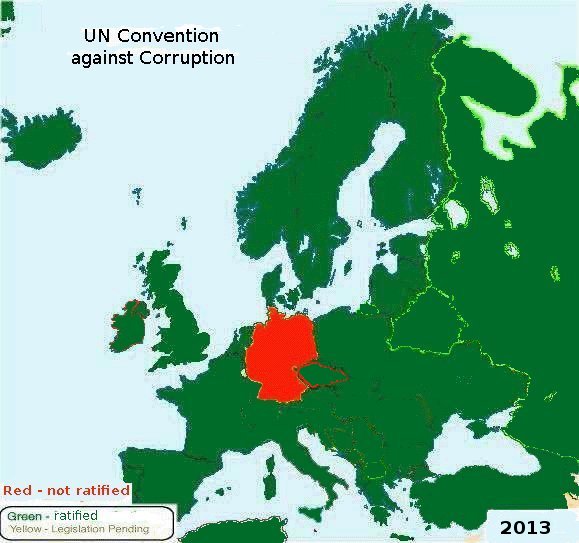
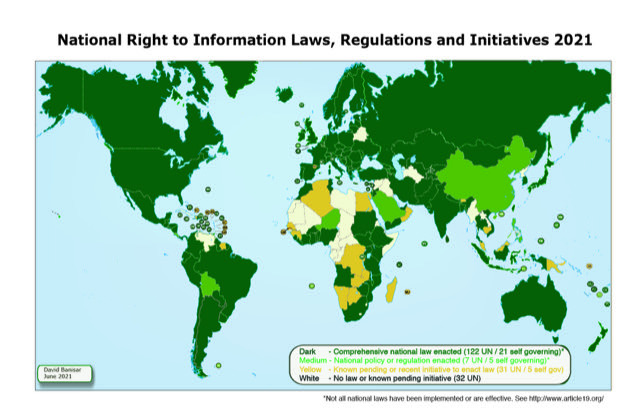
Separation of powers in Europe:
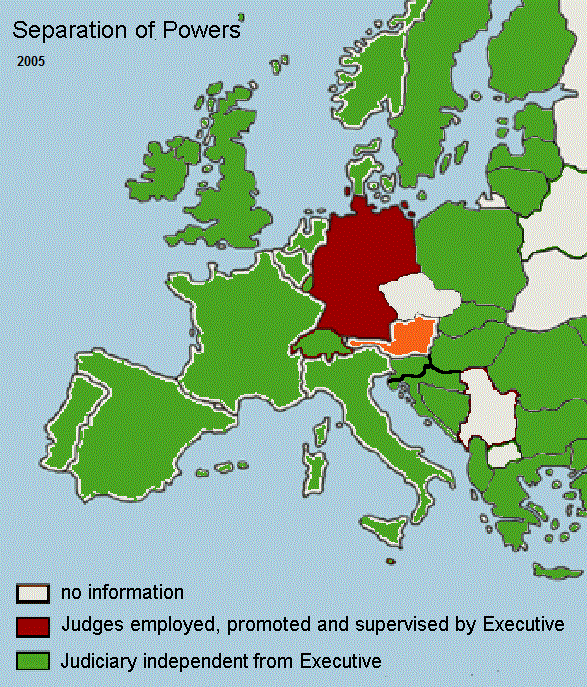
Defamation in Europe:
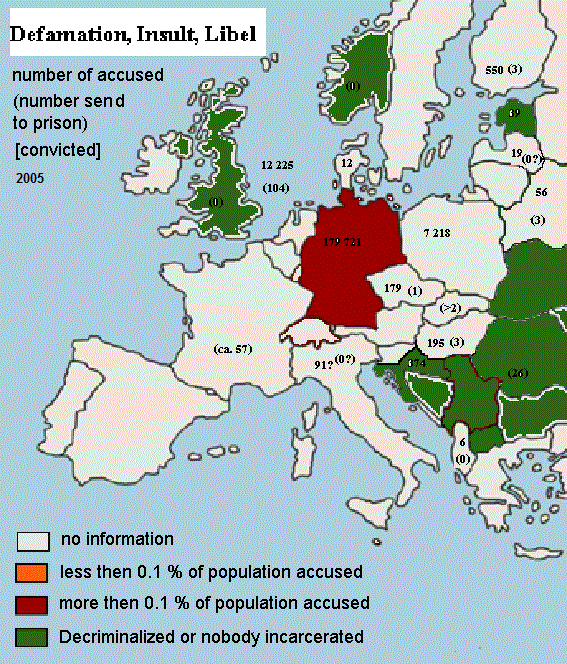

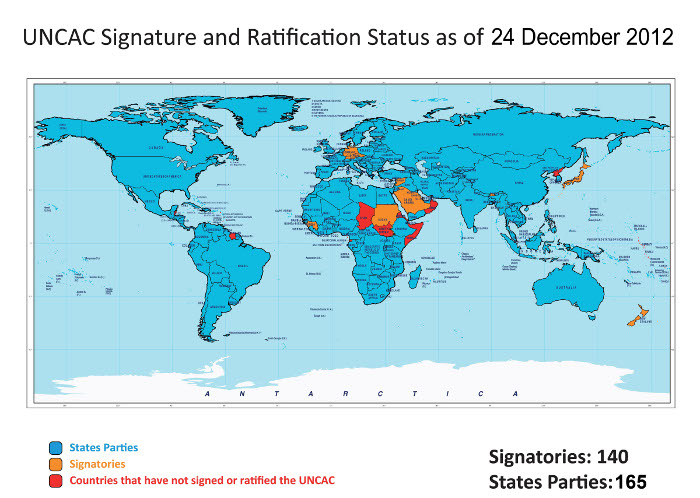
 auf Deutsch:
http://wkeim.bplaced.net/coe_resultat.htm
auf Deutsch:
http://wkeim.bplaced.net/coe_resultat.htm
 auf Deutsch:
http://wkeim.bplaced.net/coe_resultat.htm
auf Deutsch:
http://wkeim.bplaced.net/coe_resultat.htm
since 4. January 2012